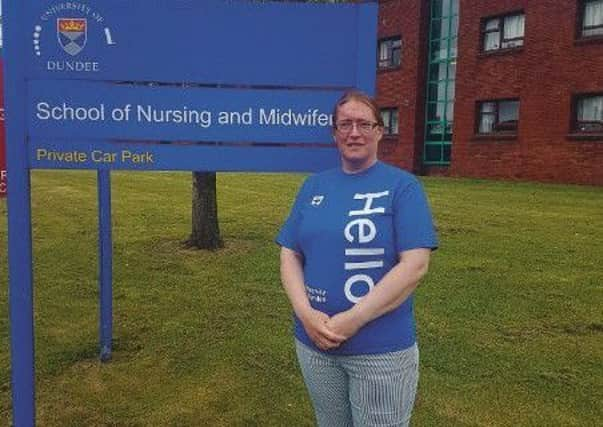‘Champions’ to help veterans get into University


The network, launched by the Scottish Funding Council (SFC), involves the champion offering support for some of the difficulties former service personnel can face and being a first point of contact for them.
Problems can range from post-traumatic stress disorder to adjusting to being a student after leading a much more structured life.
Advertisement
Hide AdAdvertisement
Hide AdGayle Davies (39) from Glenrothes, joined the Army just a week after her 17th birthday. She spent 18 years in the Royal Military Police.
Leaving the Army in 2014, Gayle then completed an access to nursing course at Fife College and is now studying at Dundee University to become a registered nurse.
She said: “The biggest adjustment is that when you’re in the military you don’t need a ‘filter’ and the language can often be quite explicit.
“One of the hardest things was people turning up late for class. In the Army, you always turn up early.
Advertisement
Hide AdAdvertisement
Hide Ad“We couldn’t just phone in sick, but ‘out there’ people just don’t turn up.
“On the other hand, it’s also quite liberating to make your own decisions.”
Ministry of Defence figures estimate that by 2028 there will be 1.6 million veterans in the UK. For every 80 veterans, 35 will be of working age.
Thirteen universities and six colleges have so far signed up to the network since its establishment in January, but it is hoped to involve all of Scotland’s 19 universities and 26 colleges.
Advertisement
Hide AdAdvertisement
Hide AdCharlie Wallace, the Scottish Veterans Commissioner, said: “Leaving the armed forces can be a daunting prospect, particularly for those that have served for a considerable amount of time.
“Navigating your way in civilian life, where the language, attitudes and aspirations may differ from being in service, can take some adjustment.
“The provision of Veterans’ Champions in further and higher education who can help veterans by signposting relevant opportunities, translating military skills to an education or employment context and providing support and understanding is to be applauded.
“This is all about maximising the talent of our ex-service people by giving them confidence in their new civilian world. If we do this, then everyone wins; the individual, the organisations and the economy.